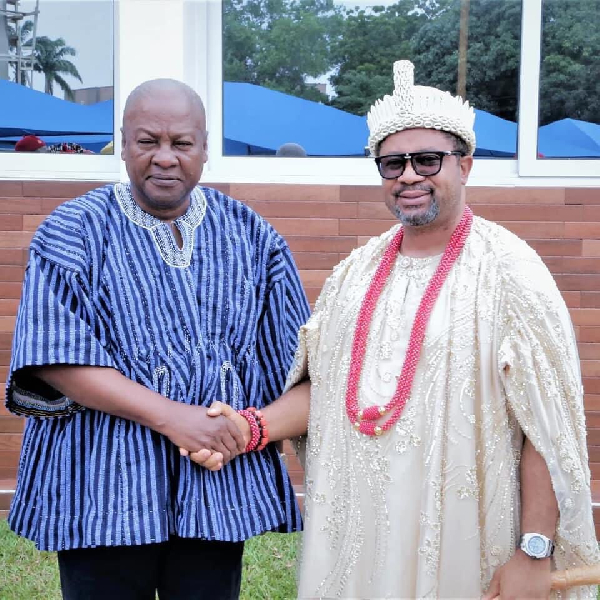A growing wave of public criticism has erupted in Ghana following renewed concerns over the activities of Eze Dr. Chukwudi Jude Ihenetu, a Nigerian-born traditional leader who has styled himself as the “King of the Igbo Community in Ghana.”
The controversy centers on the perceived establishment of an “Igbo Kingdom” within Ghana’s borders, a move that has sparked backlash from civil society groups and citizens who view it as a potential threat to Ghana’s sovereignty, cultural integrity, and national identity.
Crowning Controversy and Rising Opposition
Eze Dr. Ihenetu, who was crowned “Eze Ndi Igbo Ghana” in 2012, has long presented himself as a unifying figure for the estimated 74,000-strong Igbo diaspora living in Ghana. Over the years, he has organized cultural festivals, initiated social programs, and recently announced plans to construct an “Igbo Village” in Ghana to preserve heritage and traditions.
However, his use of royal regalia, public coronations, and kingdom-like terminology have drawn sharp criticism. A Ghanaian pressure group has formally petitioned the National House of Chiefs to intervene, alleging that Dr. Ihenetu is “parading himself as king” within Ghana in a manner that contravenes local customs and constitutional norms.
“Ghana is a sovereign republic with clearly defined chieftaincy and governance structures,” a spokesperson for the group stated. “No foreign community should be permitted to install a parallel monarchy on Ghanaian soil.”
Debate Over Igbo Diaspora Leadership
At the heart of the dispute is not just the title of “king,” but the broader implications of diasporic authority and cultural representation. In Nigeria, the Southeast Council of Traditional Rulers has formally approved the title “Onyendu Ndigbo” meaning Leader of the Igbo in the Diaspora as the legitimate designation for leaders like Dr. Ihenetu.
Critics argue that the title of “Eze”, which traditionally signifies a monarch with territorial authority, is misleading and inappropriate in a host country like Ghana.
Still, supporters of Dr. Ihenetu say he plays a valuable role in uniting and guiding the Igbo population in Ghana. The community reportedly has a dual leadership structure: a President, responsible for administrative oversight, and an Eze, who acts as a cultural custodian with sub-kings overseeing different regions.
A Question of Identity and Integration
The matter has ignited deeper questions about integration, multiculturalism, and national cohesion. Ghana, long known for its hospitality and openness to West African migrants, is now being challenged to define the limits of cultural autonomy for foreign communities within its borders.
While no formal government position has been announced, the National House of Chiefs is reportedly reviewing the petition. Analysts warn that any resolution must tread carefully upholding national law while preserving Ghana’s reputation as a peaceful and inclusive society.
What’s Next?
For now, Eze Dr. Ihenetu continues to carry out his cultural and community duties under mounting scrutiny. Whether his position will be formally recognized, redefined, or revoked remains to be seen.
What is clear, however, is that the debate over diaspora kingship in Ghana has touched a nerve and is likely to remain a subject of national conversation in the weeks ahead.


